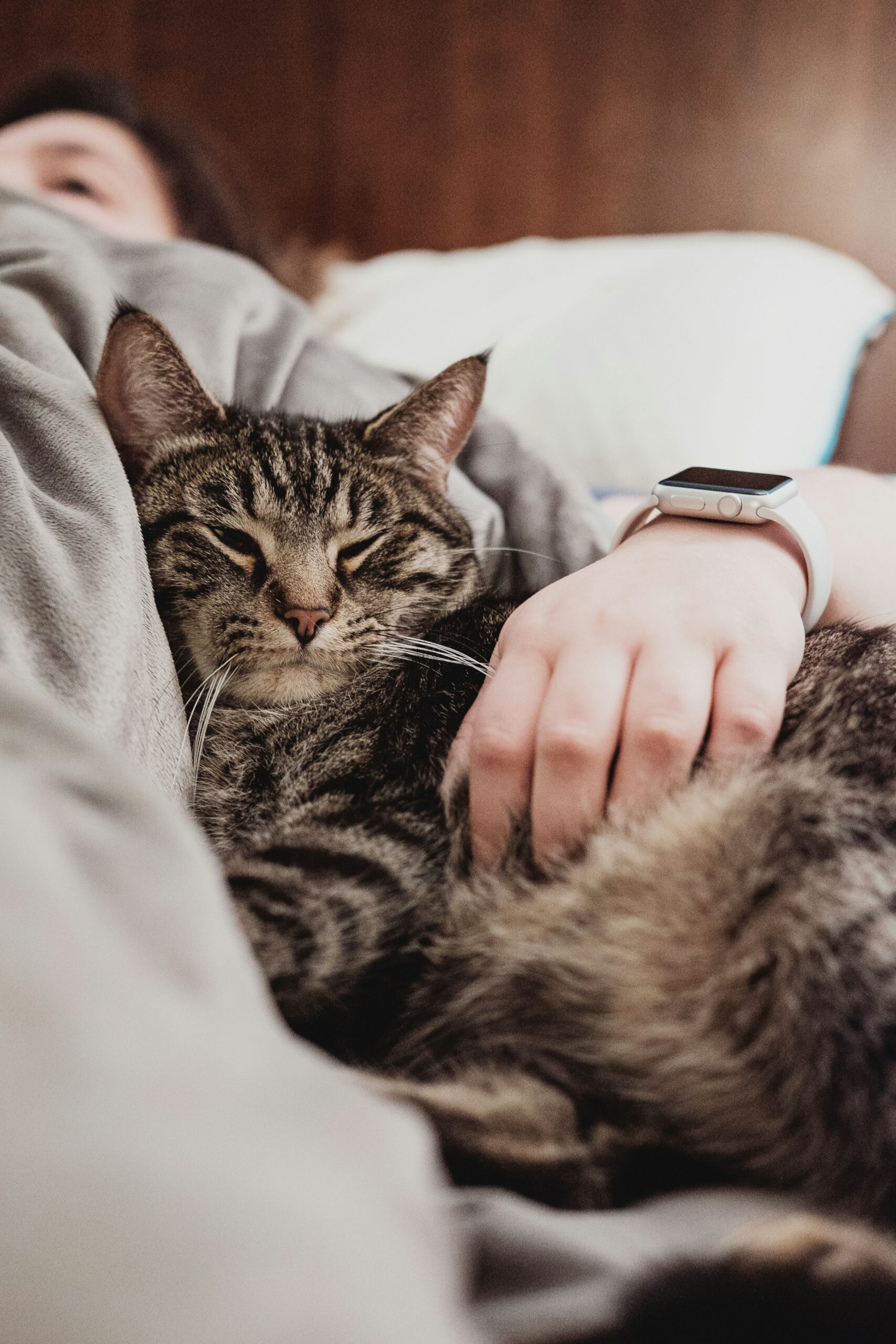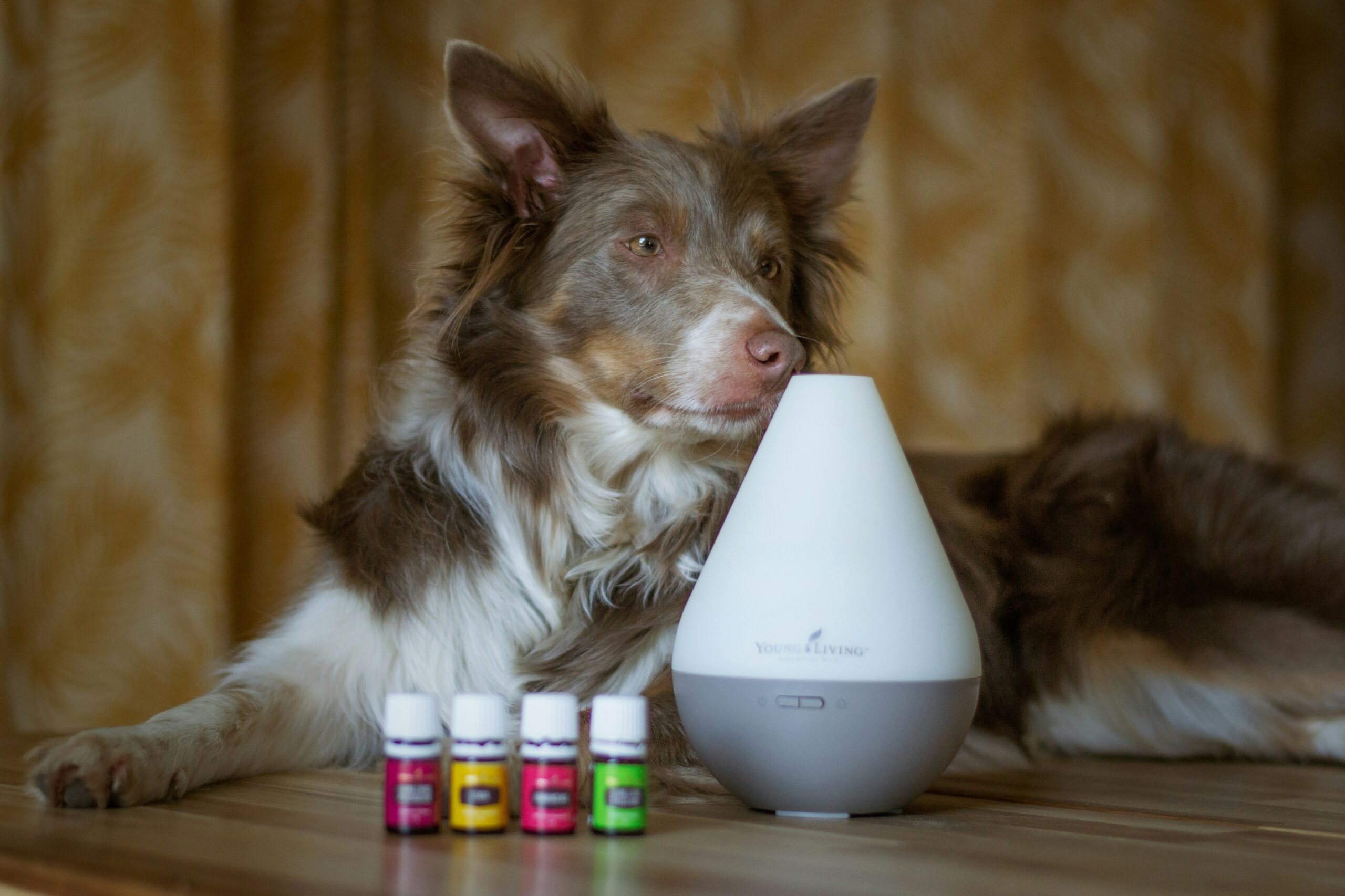Why Your Pet Needs Probiotics: Key Benefits You Should Know
Introduction to Probiotics for Pets
Probiotics, often known as beneficial bacteria, are live microorganisms that provide numerous health benefits to their host, whether it be humans or animals. These microorganisms play a critical role in maintaining a balanced gut microbiome, which is essential for overall health. When discussing gut health in pets, it involves the intricate balance of microorganisms living in their digestive systems.
The gut microbiome comprises billions of bacteria, viruses, and fungi, which work synergistically to enhance digestive processes, nutrient absorption, and immune functions. Probiotics introduce beneficial species to this complex ecosystem, helping to maintain equilibrium and counteract the negative impact of harmful bacteria or pathogens. By promoting a healthy microbiome, probiotics can enhance your pet’s digestion, bolster their immune system, and even improve their overall well-being.
The importance of probiotics for pets cannot be understated. Just like in humans, a healthy gut is foundational to preventing various ailments and promoting long-term health. In pets, an imbalance in gut bacteria can manifest as digestive issues, immune deficiencies, and even behavioral problems. Utilizing probiotics helps to ensure that the beneficial flora outnumber the deleterious species, thereby mitigating such risks and contributing to a more robust and healthy pet.
As pet owners increasingly seek ways to optimize their pets’ health, understanding the role of probiotics becomes ever more relevant. Whether it’s through dietary supplements, probiotic-enhanced foods, or specific veterinary-prescribed treatments, incorporating these beneficial microorganisms can significantly influence your pet’s quality of life. This overview underscores the essential role that probiotics play in maintaining and enhancing gut health, setting a foundational understanding for the rest of our discussion on why your pet needs probiotics and the key benefits they provide.
How Probiotics Work in Pets
Probiotics play a pivotal role in maintaining and enhancing the digestive health of your pet. These beneficial microorganisms introduce healthy bacteria into the gut, which interact with the existing gut flora. This interaction is crucial, as it fosters an environment where beneficial bacteria can thrive, aiding in the proper digestion and absorption of nutrients from the food your pet consumes.
In essence, the gut microbiome—composed of a plethora of bacteria and other microorganisms—has a significant impact on overall pet health. When a balanced gut flora is maintained, it leads to an efficient digestive process. Probiotics function by bolstering this balance, thereby reducing the prevalence of harmful bacteria that can disrupt the gut environment. By improving the composition of intestinal flora, probiotics can enhance the digestive efficiency and nutrient uptake in pets.
Moreover, these beneficial bacteria support the gut’s epithelial barrier, a vital structure that keeps pathogens at bay and prevents them from entering the bloodstream. This protective role is amplified with the use of probiotics, which help to strengthen this barrier. A robust epithelial barrier ensures a reduced incidence of gastrointestinal issues, contributing to overall wellness and energy levels in pets.
Additionally, the presence of a healthy microbiome influences the synthesis of certain vitamins and fatty acids, which are critical for your pet’s health. Probiotics can boost this synthesis, ensuring that deficiencies are less likely to occur. By aiding in the proper fermentation of indigestible fibers, probiotics also help to manage the pet’s weight and support optimal bowel movements.
To sum up, the integration of probiotics into your pet’s diet can result in a formidable and effective digestive system. By promoting a balanced gut flora, probiotics help in sustaining the optimal health and well-being of your pet. This harmonious balance not only enhances digestion but also curtails the proliferation of harmful bacteria, contributing to a healthier and happier pet.
Boosting Immune System Function
Probiotics play a pivotal role in bolstering your pet’s immune system by maintaining a healthy balance of beneficial bacteria within the gut. The gut microbiome is intricately connected to the immune function, with over 70% of immune cells residing in the gastrointestinal tract. This relationship underscores the importance of gut health in building a strong immune defense. Introducing probiotics into your pet’s diet can help establish and maintain this essential microbial equilibrium.
A well-balanced gut microbiome enhances the body’s ability to fend off pathogens. When beneficial bacteria flourish, they crowd out harmful microbes and compete for nutrients, thereby limiting the growth of disease-causing bacteria. Additionally, certain strains of probiotics can stimulate the production of immune cells and fortify the gut barrier, reducing the likelihood of infections. Reports indicate that pets supplemented with probiotics experience fewer incidences of diarrhea and respiratory infections, highlighting the direct impact on immune health.
Research also suggests that probiotics can alleviate allergic reactions in pets. For instance, studies have demonstrated that specific probiotic strains can decrease the severity of skin allergies in dogs. By modulating immune responses, these beneficial bacteria help reduce inflammatory reactions that lead to allergy symptoms. The positive effects of probiotics on managing allergies and autoimmune conditions further underscore their potential in enhancing overall immunity.
Moreover, pet owners have reported that probiotic-fed animals exhibit a robust resilience against seasonal illnesses. A study conducted on a group of dogs revealed that those receiving a daily dose of probiotics had a significantly lower rate of viral and bacterial infections compared to the control group. This finding reinforces the value of probiotics in sustaining long-term immune health.
By integrating probiotics into your pet’s diet, you can effectively support their immune system, ensuring they maintain a healthier, more resilient body capable of combating various pathogens and allergenic challenges. The symbiotic relationship between gut health and immunity emphasizes the indispensable benefits of these beneficial microorganisms.
Improving Digestive Health
Addressing digestive issues in pets is crucial for their overall well-being, and probiotics play a significant role in this regard. Digestive problems such as diarrhea, constipation, and Irritable Bowel Syndrome (IBS) are common in pets and can cause discomfort and distress. Probiotics, which are beneficial microorganisms, help in maintaining a healthy balance of gut flora, thus promoting efficient digestion and nutrient absorption.
Probiotics work by repopulating the gut with healthy bacteria, which helps to outcompete harmful pathogens that contribute to digestive disturbances. For example, in cases of diarrhea, probiotics can re-establish normal gut flora, reduce the severity of symptoms, and shorten the duration of the condition. Similarly, for pets suffering from constipation, the right blend of probiotics can help soften stools and promote regular bowel movements.
In managing Irritable Bowel Syndrome (IBS), probiotics offer significant benefits. Pets with IBS typically exhibit symptoms like intermittent diarrhea and abdominal discomfort. Probiotic supplementation can mitigate these symptoms by enhancing the gut barrier function, reducing intestinal inflammation, and modulating the immune response. This leads to a more stable intestinal environment, thereby lessening the occurrence of IBS flare-ups.
Probiotics also contribute to the production of short-chain fatty acids (SCFAs), which are pivotal for gut health. SCFAs, like butyrate, propionate, and acetate, nourish the intestinal lining, enhance mucus production, and play a role in maintaining gut integrity. This, in turn, aids in reducing inflammation and preventing conditions like leaky gut syndrome. By supporting the delicate balance of gut microbiota, probiotics ensure that pets have healthier digestive systems and improved overall health.
Incorporating probiotics into your pet’s diet is a proactive approach to prevent and alleviate digestive issues, ensuring your furry friends lead happier and healthier lives. Whether through specialized pet foods or supplements, probiotics offer a natural and effective solution for promoting digestive health.
Enhancing Nutrient Absorption
Probiotics play a pivotal role in improving your pet’s nutrient absorption, an aspect that significantly contributes to their overall well-being. These beneficial bacteria facilitate the process of fermentation within the gut, which, in turn, enhances the breakdown and assimilation of essential vitamins and minerals from your pet’s diet. By supporting the gut microbiome, probiotics create an optimal environment for nutrient uptake, boosting your pet’s health and vitality.
The process begins when probiotics colonize the digestive tract and initiate fermentation. This fermentation process helps break down complex carbohydrates and fibers that are otherwise indigestible. As these components are broken down, they become more accessible for absorption. This enhanced breakdown not only ensures that essential nutrients are more efficiently extracted from food but also supports better digestive health and function.
One notable benefit of probiotics is their ability to aid in the absorption of specific vitamins and minerals. For instance, certain strains of probiotics can enhance the bioavailability of B-vitamins, which are crucial for energy metabolism and maintaining a healthy nervous system. Additionally, probiotics can improve the absorption of calcium and magnesium, minerals vital for maintaining strong bones and proper muscle function. Other nutrients that benefit from this enhanced absorption include vitamin K, necessary for blood clotting, and various antioxidants that protect against cellular damage.
By supporting the breakdown and absorption of these key nutrients, probiotics not only ensure that your pet receives maximum nutritional value from their food but also promote overall well-being. A healthy gut microbiome facilitated by probiotics can lead to better energy levels, stronger immunity, and an improved quality of life for your furry companion. Integrating probiotics into your pet’s diet can thus be a simple yet highly effective strategy for optimizing their health.
Reducing Stress and Its Effects
Stress can significantly influence your pet’s overall health, manifesting in both physical and behavioral issues. Chronic stress may lead to digestive problems, weakened immunity, and changes in behavior such as anxiety and aggression. The gut-brain axis plays a critical role in this dynamic. This complex communication network between the gastrointestinal tract and the brain regulates stress responses and emotional well-being, emphasizing the importance of gut health in managing stress.
Probiotics, beneficial microorganisms that support gut health, can directly impact this gut-brain connection. By enhancing the balance of good bacteria in the digestive system, probiotics help maintain a healthy gut environment, which in turn supports optimal brain function and stress resilience. When the gut flora is balanced, it can produce and regulate neurotransmitters like serotonin, which are vital for mood regulation and stress management.
Scientific research underscores the positive effects of probiotics on pets’ stress levels. A study published in the journal PLoS One indicated that dogs receiving probiotic supplementation exhibited lower levels of cortisol, a primary stress hormone, after exposure to stress-inducing situations. Similarly, a study in the journal Animals highlighted that probiotics could alleviate anxiety-like behaviors in cats, suggesting significant mental health benefits.
Additionally, probiotics can mitigate stress-related behaviors by enhancing digestive health. Pets suffering from gastrointestinal issues often show signs of discomfort and anxiety. By supporting a robust and balanced gut microbiome, probiotics can reduce such symptoms, contributing to overall improved mood and behavior.
In summary, integrating probiotics into your pet’s diet can be a valuable strategy in reducing stress and its adverse effects. By fostering a healthy gut, you are not only enhancing your pet’s digestive health but also supporting its mental and emotional well-being, paving the way for a happier, more stress-resilient companion.
Promoting Healthy Skin and Coat
Probiotics offer a multitude of benefits for your pet’s overall health, including significant improvements in their skin and coat. At the core of these benefits is the crucial role probiotics play in balancing gut flora. A well-balanced gut flora fosters optimal digestion and nutrient absorption, both of which are integral to maintaining healthy skin and a vibrant coat.
The connection between gut health and skin condition is profound, as disruptions in gut flora can lead to systemic inflammation, which often manifests externally. By incorporating probiotics into your pet’s diet, you help stabilize their intestinal environment, thereby reducing inflammation. This reduction in inflammation directly correlates with diminished skin irritation and allergies, resulting in a clearer, healthier complexion for your pet.
Adequate nutrient absorption is another vital aspect of skin and coat health that probiotics promote. When your pet’s digestive system is functioning optimally, it efficiently absorbs essential nutrients like omega-3 fatty acids, vitamins, and minerals. These nutrients are crucial for maintaining skin elasticity and fur strength. As a result, pets with a balanced gut flora are likely to experience less shedding and enjoy a shinier, more lustrous coat.
Furthermore, a robust digestive system supported by probiotics helps in detoxifying the body. Toxins and waste products are more effectively eliminated, which can prevent them from overburdening the liver and causing skin issues. When your pet’s internal systems are operating seamlessly, it is reflected in their external appearance, enhancing their overall well-being.
In summary, the inclusion of probiotics in your pet’s diet is a strategic approach to promoting both internal health and external beauty. By ensuring a healthy gut flora, you not only enhance your pet’s nutrient absorption and immune function but also contribute to a noticeable improvement in their skin and coat quality. Investing in probiotics is, undeniably, an investment in your pet’s health and happiness.
Selecting the Right Probiotic for Your Pet
Choosing the right probiotic supplement for your pet is an essential aspect of ensuring their overall health and well-being. Selecting an appropriate probiotic requires careful consideration of several factors, beginning with species-specific strains. Different strains of probiotics are beneficial for different types of animals, hence it’s pivotal to choose a product specifically designed for your pet’s species to maximize the potential benefits.
Another critical factor is seeking veterinary recommendations. Consult your veterinarian before introducing any new supplement into your pet’s diet. A veterinarian can assess your pet’s specific health needs and guide you toward a suitable probiotic that addresses their particular conditions or digestive health requirements. This professional insight helps ensure that you are giving a supplement that is both safe and effective for your pet.
Furthermore, scrutinizing the quality of probiotics is paramount. One important measure of quality is the Colony Forming Units (CFU) count. A higher CFU count often indicates a more potent product, as it represents the number of viable bacteria cells per dose. Additionally, examine the list of ingredients for supplementary components, such as prebiotics or other nutrients that can enhance the effectiveness of the probiotic.
Once you’ve selected the right probiotic, proper introduction into your pet’s diet is crucial for minimizing any potential adverse reactions. Start with a smaller dose and gradually increase it to the recommended amount. Monitor your pet for signs indicating a positive response to the probiotic supplementation, such as improved digestion, enhanced energy levels, and better coat condition. If any negative reactions occur, such as gastrointestinal upset, consult your veterinarian immediately to reassess the supplementation regime.
Through deliberate selection and mindful introduction, probiotics can significantly contribute to your pet’s health, demonstrating the importance of considered choices in supplementing their diet for optimal wellness.














Post Comment